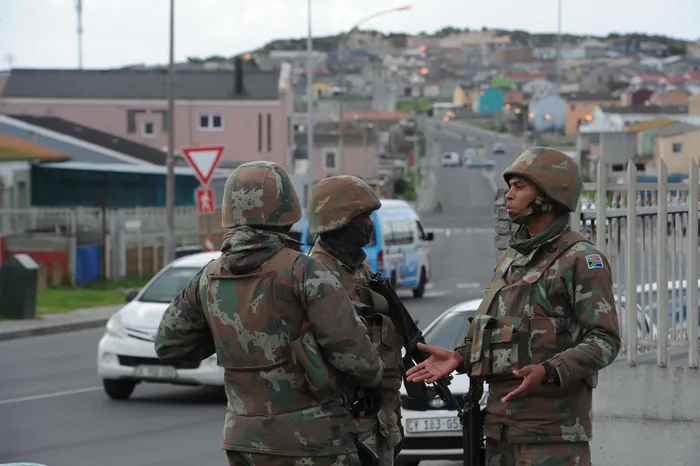
The relationship between citizens, security forces and the executive have a lot in common to that of dogs, cattle and the owner. Photo: Henk Kruger/African News Agency (ANA) The relationship between citizens, security forces and the executive have a lot in common to that of dogs, cattle and the owner. Photo: Henk Kruger/African News Agency (ANA)
JOHANNESBURG - I am ceaselessly intrigued by the relationship between dogs, cattle and their masters.
This behaviour is at times not different from that found in the state.
The relationship between citizens, security forces and the executive have a lot in common to that of dogs, cattle and the owner.
The tragic events of Bulelani Qolani, the Khayelitsha resident humiliated by City of Cape Town security officers who dragged him naked out of his shack, reminded me of my herdboy experiences five decades ago.
Let us explore this relationship. The government is a hegemony that is contested. A hegemony is described as leadership or dominance, especially by one state or social group over others.
This contestation manifests in the instruments it uses to assert its hegemony, which takes the form of enforcement, facilitation, provisions as well as impugning neglect and pain.
In the dark days of Apartheid, state hegemony would act with gross disregard for human rights against its citizens.
However, a democratic South Africa on Thursday saw the same type of Apartheid era scenes with Qolani's violation.
George Floyd suffered too at the hands of security forces, albeit white.
We are reminded that at the base of hegemony of the state are the intersection of the black man phenomena, race and class.
Qolani put up a gallant fight against the security officers, finally got back into his modest home, but even then the enraged officers tore his shack down.
The black state set black officials on black Qolani.
This twist of events of black force squared on a black citizen reinforces the fundamental message that Black Lives Matter even more because they are faced with a state hegemony dressed in massive power.
The state as a hegemonic force tried to justify its actions against the community of Empolweni, Khayelitsha. The law allows the state to clampdown on land invasion and the community of Empolweni is occupying the land illegally so says the rule of law. But whose law is it?
The question of the right to land and expropriation of land without compensation was a subject of extensive deliberations and possible amendment to the constitution to allow for this.
Largely, the discussions were skewed towards agricultural land, but black South Africans are hungry for urban land where they can put up houses, access jobs, and have children join them and attend schools.
According to the fact finder of the nation,Statstics SA - Qolani’s naked body brought to the land expropriation debates faces and the plight of 14.5 percent of South Africa’s total dwelling stock. There are 2.2 million shack dwellings in South Africa.
But in the global discourse of Black Lives Matter, Qolani’s humiliation on the one hand and an apology by the City of Cape Town and firing of the four officials represents hypocrisy of state hegemony - the typical master, cattle dog relationship I observed as a herdboy.
Qolani was fending for his family and, hopefully, pays taxes to the city manager.
But like dogs, the security officers of the sleeping city manager barked at Qolani and took him out of his house naked so that Qolani would never see it as a home but as a house of horrors and nightmares.
The master now angered by lack of taxes and embarrassed by public opinion suspends his dogs. Everyone is a loser, not only Qolani, but the master and dog also lose. This miserly approach to governance is not a problem of Cape Town only, it is at the heart of the state of the state today.
Dr Pali Lehohla is the former Statistician-General of South Africa and the former head of Statistics South Africa. Meet him at www.pie.org and @palilj01.